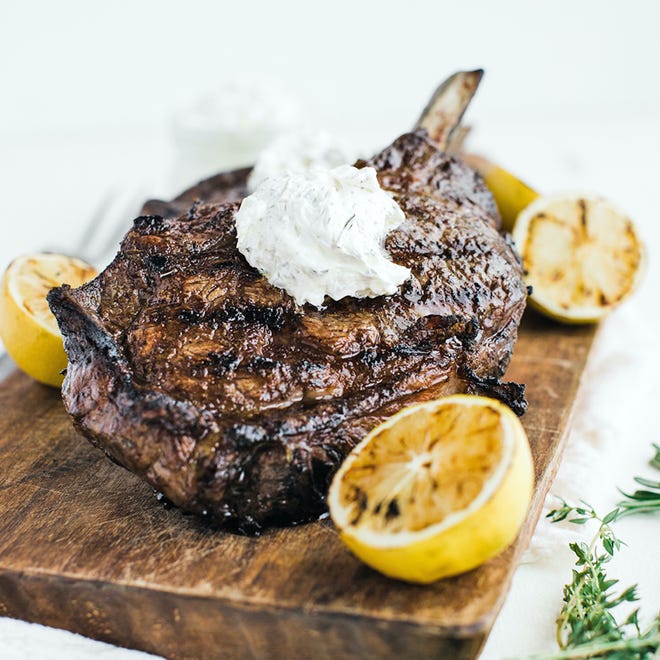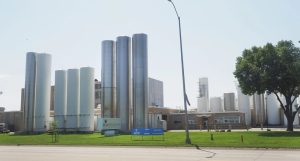“While it can be difficult to pinpoint all contributing factors, we do know that dairy farmers diversifying their farms or converting to beef production certainly is playing a part in Wisconsin growing their beef herd,” said Jeff Swenson, livestock and meat specialist at the Wisconsin Department of Agriculture, Trade and Consumer Protection, in an email provided by the Wisconsin Beef Council.
Many of the state’s smaller dairy farms have been drying up , with remaining ones getting larger. Wisconsin has 1.26 million head of dairy cows as of the start of 2021, about four times the number of beef cattle. Yet, only 6,800 dairy farms remain, about half the number of beef farms.
Another stark contrast is that less than half of the remaining dairy farms have fewer than 50 cows, according to Riley at the Wisconsin Beef Council and census data.
The number of cattle in Wisconsin has grown consistently in the past decade, even as the number has decreased in many states, Swenson wrote in the email.
Doug Ney, beef farmer and owner of Ney’s Premium Meats, looks over his angus cows on pasture in Hartford. Courtesy Of Ney’s Premium Meats
Ney’s free-range beef is entirely sourced and processed in Wisconsin, from Ney’s friends, uncles and other family members.
One notable selection is their prime rib burger, using ground rib-eye. The burgers come three patties to a 1-pound package for $9 at neysbigsky.com
Ney’s also grinds its custom Bloody Mary burger, corned beef burger and whiskey peppercorn burger, to name a few others. The uniform size and thickness of pre-formed patties can help with even cooking on the grill.
Ney’s meats are sold at the South Shore and Brookfield farmers markets plus stores including Metcalfe’s Market in Wauwatosa and Madison, Woodlake Market in Kohler, Good Harvest Market in Waukesha and The Organic Market in Slinger.
A red angus grazes at the Kerstiens family ranch in Lancster, which grows cattle for Strauss Brands meats. Courtesy Of Strauss Brands
For Strauss Brand meats based in Franklin, ground beef is the bestseller during grilling season.
“Ground beef — hard to beat a burger on those hot days. Rib-eye steaks and strip steaks are also popular choices this time of year,” said Devin Kulla, marketing director at Strauss.
At home, Kulla said, he enjoys grilling a marinated flank or skirt steak for tacos.
“A little brown sugar in the marinade helps get a nice sear on the outside,” he said.
Strauss gets about 15% of its beef from Wisconsin producers, with the remaining primarily coming from the rest of the Upper Midwest and South Dakota.
“Our cattle are born and raised in the USA, where they are always free to roam on pasture. Our ranchers utilize pasture management practices like rotational grazing that helps restore our soil, therefore reducing erosion and improving water quality,” Kulla said.
Strauss beef is all grass fed with no antibiotics or added hormones, he said. Strauss beef is available at Pick ‘n Save, some Piggly Wiggly, Meijer, Woodman’s Market and Sendik’s Food Market.
Wisconsin Meadows is another option for pasture-raised beef. A co-op based in Viroqua, Meadows’ beef cattle are rotationally grazed on Wisconsin family farms across the state, according to wisconsinmeadows.com .
The cattle are never put in feedlots, and calves are left with their mothers to learn grazing and social behaviors. Wisconsin Meadows beef can be found at its website and throughout the Midwest in stores including Albrecht’s Delafield Market, Outpost Natural Foods, Metcalfe’s Market, Riverwest Co-op, Health Hut and Glenn’s Market in Watertown.
Another farmer co-op, Organic Prairie, based in La Farge along with Organic Valley, provides more beef options, available at Health Hut, Woodman’s Market, Whole Foods, Outpost Natural Foods, Woodlake Market, Metcalfe’s Market and Sendik’s Food Market.
At Sendik’s Food Market, with 17 locations around southeastern Wisconsin, steaks are the “big focus” for Father’s Day weekend, according to Brian Schroeder, meat and seafood director.
He predicted increased demand on Father’s Day and through summer for rib-eyes, T-bones, filets, porterhouse and New York strip steaks. Also popular are marinated beef tenderloin kebabs, gourmet burgers and marinated beef skewers.
The stores carry mostly USDA choice or higher-grade beef, including American Wagyu beef, grass-fed and grass-finished beef.
Jennifer Rude Klett is a Wisconsin freelance writer of history, food, and Midwestern life. Contact her at jrudeklett.com. USA Today contributed to this report.
This Wisconsin-themed cookout plate includes a prime rib burger from Ney’s Premium Meats in Hartford, topped with a sharp cheddar from Hook’s Chese in Mineral Point on a sprounted whole grain bun from Angelic Bakehouse in Cudahy. Jennifer Rude Klett
Beef buzzwords
To cut through all that meat lingo, here’s a rundown of a few of the beef buzzwords, according to the Cattlemen’s Beef Board and National Cattlemen’s Beef Association at beefitswhatsfordinner.com americangrassfed.org certified.naturallygrown.org
Grain-finished: This beef comes from cattle that have begun eating grass or forage but then spend four to six months at a feedlot fattening up on grains, forage, hay or local feed ingredients such as potato peels or sugar beets. FDA approved antibiotics and growth-promoting hormones may or may not be given.

























